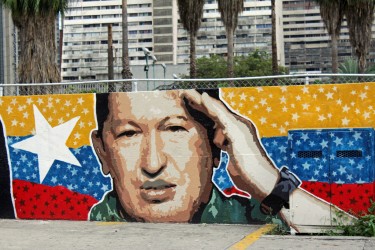
As a staunch critic of the United States and a leading figure of the left-wing revival across Latin America, Hugo Chávez Frías has undoubtedly left a remarkable footprint on contemporary international politics. But what will come of his legacy?
As Venezuela mourns and a new election campaign commences, many are asking questions about the future of political relations in Latin America, a region where Chávez is credited with strong leadership.
Antonio J. Vázquez from Passim blog writes:
As for foreign relations, with Maduro as president it does not appear that regional and transoceanic relationships will change. The influence in the [Latin America] region will be maintained at the same level, as long as there is oil and money. Venezuela will continue to export barrels [of oil] to Cuba at gift prices, and will continue trading at preferential prices with countries of its natural [political] environment, beyond the geographical.
This is likely to be welcomed beyond Havana. Currently, twenty Latin American and Caribbean countries continue to benefit from Venezuela’s Petrocaribe [es] program of energy subsidies and preferential oil prices. These include the economically devastated Haiti.
Along with his “anti-American” discourse, Chávez also attempted to boost integration processes across Latin America. The Community of Latin American and Caribbean States (CELAC) and The Bolivarian Alliance for the Peoples of Our America (ALBA) are, perhaps, the two leading examples of Chavez’s attempts to use regional organizations to circumvent the power and influence of the United States. The question now is whether Maduro or another politician will lead the region according to Chavez’s legacy, or more moderately.
Manu García, a supporter of the so-called ‘Bolivarian’ process led by Chávez over the last 14 years, appears to want continuity and change:
However, the excessive personalization of ‘the process of change’ is concerning. The Bolivarian process should consolidate a collective leadership if it does not wish to perish in the struggle for the legacy of the deceased. The challenge is to be a real process and ‘Bolivarian’ rather than merely a facade and “chavism”.
Others doubt that this could happen. Carlos Malamud, a researcher from the Real Instituto Elcano, concludes:
A new continental myth may have emerged after the death of Hugo Chávez, even comparable to that of Che Guevara or Simón Bolívar. That is not the issue at this stage. What is clear is that beyond his remembrance, Chávez’s continental leadership is non-transferable and currently there is no one in Latin America with the charisma, the resources, and the favorable agenda to take his place.
For additional reading on this topic please see:
For more information on issues and events that shape our world please visit the ISN’s featured editorial content and Security Watch.

